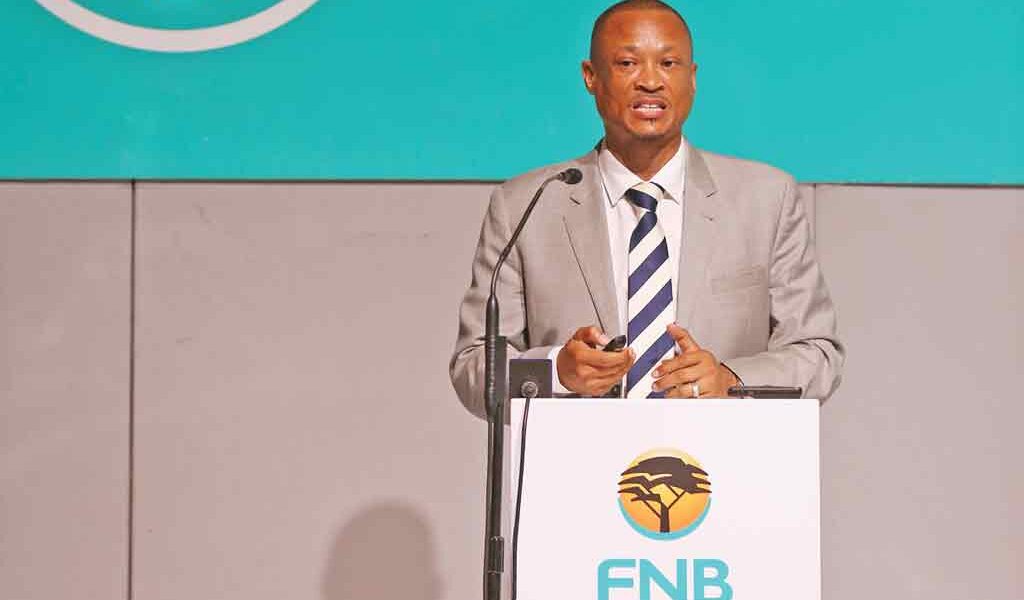We have seen increasing competition not because of new entrants but from our customers who have come in to provide the same services that we are providing, this has resulted in reduction of our market share – FNB CEO
OAITSE MATHALA
First National Bank (FNB) Botswana Chief Executive Officer (CEO), Steven Bogatsu has indicated that bank rates might go up in the next couple of months, and this is going to lead to an increase in impairments.
The Bank of Botswana’s Monetary Policy Committee early August decided to reduce the Bank Rate by half a percentage point to 5.5 percent. FNB then released a statement which said, “Following a 50 basis points Bank Rate decrease by Bank of Botswana, customers are advised that our Prime Rate will decrease by 0.5% from 7.5% to 7.0% with effect from 12 August 2016. All prime-linked products will decrease by 0.5% effective from 12 August 2016.”
In their financial results and dividend announcement for the year ended 30 June 2016, FNB say they subsequently expect the Bank of Botswana to remain accommodative through to 2017 by keeping rates at current levels, “with little room for further easing.”
Speaking during the announcement of the results last week, the CEO, Bogatsu shared that interest rates would go up in a couple of months, and they are worried that once they go up, they are going to be hit by impairments like they have never experienced before. Impairments at the Bank have grown by 14% year-on-year.
Bogatsu told stakeholders that the decline of interest rates has impacted their margins, and there is a possibility of; “flight of funds from this economy to areas where interest rates are much better.”
He noted that liquidity conditions have improved and that the economic landscape was better as compared to the prior year. “Economic landscape has been a very challenging one, but not as challenging as in 2015 when we presented the results at GICC. The engine of FNB business is still intact,” he said.
The CEO pointed out that there was no business confidence last year and businesses were not borrowing because they did not see any viability; and while individuals borrowed at high rates, they were borrowing for consumption not for investment. “However, the business sector is beginning to see opportunities and this shows that the business confidence is recovering,” Bogatsu said.
FNB, according to Bogatsu, has faced competition from its customers, which has dealt a blow to its market share. “We have seen increasing competition not because of new entrants but from our customers who have come in to provide the same services that we are providing, this has resulted in reduction of our market share,” he said.

